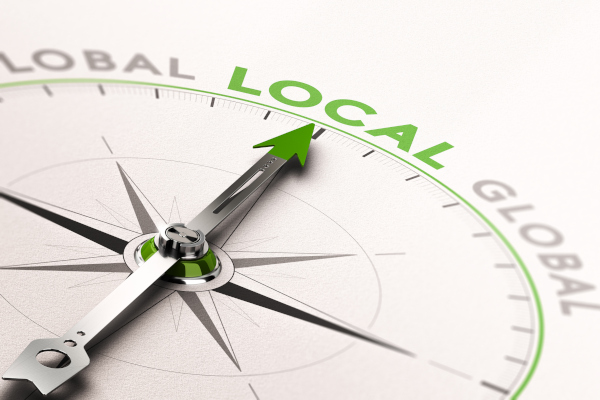Navigating Cultural, Country Differences When Nearshoring Operations
From weather patterns and cultures, to trade and regulations, each country is a different operating environment
International trade saw more changes in 2023 than ever before as organizations worked to meet stricter regulations and mitigate disruptions created by increasing geopolitical tensions. Shippers also saw an increased focus on building supply chain resiliency to combat these challenges. In doing so, reshoring and nearshoring efforts in Southeast Asia, India, Mexico, and Canada gained traction—a trend that will continue into 2024 as North American manufacturers and retailers continue moving operations closer to home.
According to a survey by Accenture, within the next three years, 78% of companies plan to produce products at multiple sites, compared to 41% in 2023. Another 72% plan to use multi-sourcing strategies, compared to 42% doing so today.
The survey also found that while automotive companies and suppliers lead most nearshoring activity, healthcare and energy companies are following suit. In Canada, energy products, for example, saw the largest increase in exports in 2022. In 2023, that trend was compounded by continued investments from electric vehicle (EV) battery manufacturers looking to build operations as EV demand increases.
“Winter weather events affecting transit times are not unique to Canada, but relative to the U.S., the country experiences these events more persistently and simultaneously. Not only do these seasonal events pose potential issues, but extensions of these events must also be considered.”
“Canada is becoming more widely known and sought after for its energy products like mineral fuels and oils,” said Noah Sidenberg, director of Canada Operations at Arrive Logistics. “As we see the push toward electrification of transportation, and nearshoring/reshoring remain steady, this will see continued trade between U.S. and Canada.”
Shippers must consider volatile market conditions
As the nearshoring boom continues into 2024, and shippers, carriers and brokers expand into new logistics markets, it is critical they pay attention to market conditions unique to that country or region. Canada, for example, is greatly impacted by seasonal pressures such as extreme winter weather events and a period known as the “Spring Thaw.”
“Winter weather events affecting transit times are not unique to Canada, but relative to the U.S., the country experiences these events more persistently and simultaneously,” said Sidenberg. “Not only do these seasonal events pose potential issues, but extensions of these events must also be considered.”
During the months of March and April when the Spring Thaw occurs, for example, certain regions and roads in Canada reduce weight allowances to reduce highway damage. The exact timing changes each year depending on thaw depth readings and geographic location.
“This means shippers, carriers and logistics industry professionals have to be especially mindful of where and how their freight is moving across the country to avoid penalties,” said Sidenberg.
For logistics professionals, this creates a greater need for better contingency planning and open, honest communication.
“Failure to communicate these issues in a timely and accurate manner can cause challenges to snowball, increasing their impact,” added Sidenberg. “Empowering team members with the right tools to increase efficiency and accuracy in these workflows can drastically mitigate the potential impact of these events.”
How to adapt your business model to meet cultural differences
What works in one country might not translate to another. Shippers must also take into account the cultural differences that may impact how they do business.
Language represents a key cultural difference in many areas of the world. This not only impacts day-to-day business interactions, but the overall systematic business operations required to do business within each country, province, or region, relative to their language laws.
It’s also important to be aware of differences in work culture to avoid potential conflicts and maximize areas of opportunity. Understanding these differences can be especially helpful during contract negotiations or general business discussions.
“Canadians tend to be more reserved and averse to conflict,” said Sidenberg. “This can have drastic effects on negotiation and conflict resolution styles.”
As shippers look to expand or move operations outside of the U.S., they must consider not only these cultural differences but infrastructure, regulations and trade measures that best align with their goals. Organizations must continue to be strategic about how they approach and adapt their business model to meet the nuances of different countries.
Article Topics
Accenture News & Resources
What generative AI means for supply chain work Supply Chain Currents Part I: Is there a different way to move freight more effectively? Companies Shifting Away from China a Boon to U.S., Mexico Accenture survey highlights factors that can influence nearshoring decisions AI Simulation Helps Supply Chains Predict the Future Navigating Cultural, Country Differences When Nearshoring Operations Global companies are planning more regional approaches to manufacturing, selling More AccentureLatest in Transportation
Is There a Next Generation of Truckers? Data Reveals Grim Outlook A Look at Baltimore’s Key Bridge Collapse—One Month Later Baltimore Continues Bridge Recovery With Opening of New Channel How Shippers Can Prep for Hurricane Season UPS Struggles in First Quarter With Steep Earnings Decline FedEx Announces Plans to Shut Down Four Facilities The Two Most Important Factors in Last-Mile Delivery More TransportationAbout the Author















